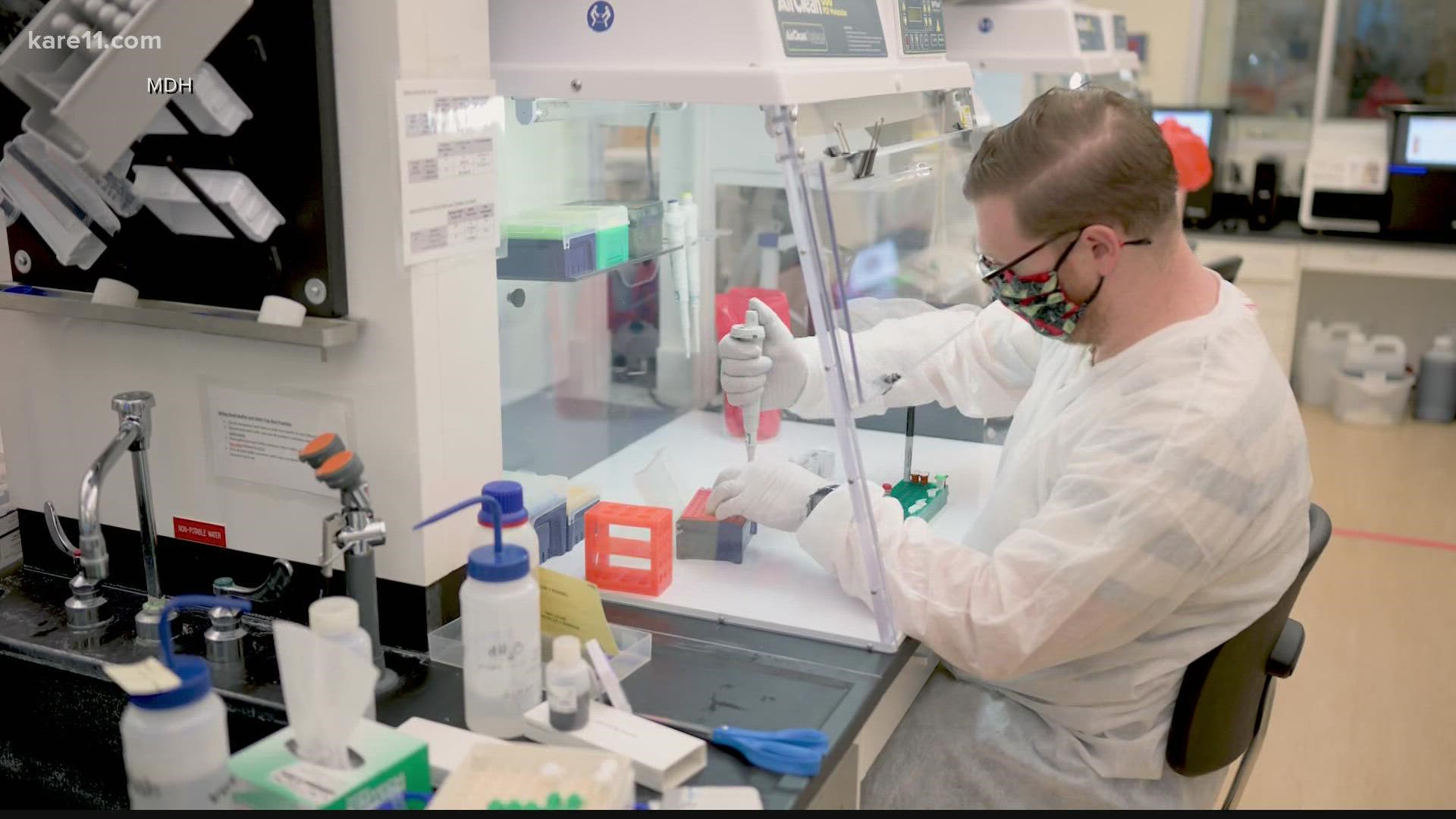MINNEAPOLIS — For nearly a year now, scientists in public health labs across the country have been working to find ways to identify mutations of COVID, leading us to where we are now.
"There's a new variant in town known as omicron," said Dr. Matt Binnicker, director of clinical virology at Mayo Clinic.
One of the main ways scientists say they've been able to identify new mutations is through a method called sequencing.
"Sequencing is a technique we use in the laboratory that will actually read the entire genetic sequence of a viral genome and show us where the mutations are that are important for identifying variants," said Dr. Sara Vetter, assistant division director for the Public Health Laboratory.
At the beginning of the year, scientists say sequencing in the U.S. was off to a slow start, sequencing fewer than 1 percent of positive cases.
"Right now we are not sequencing every COVID-19 case; it's really a small subset," said Dr. Binnicker.
But with help from President Joe Biden's coronavirus relief bill, $1.7 billion is fueling an increase in sequencing capacity nationwide from 40,000 to 80,000 tests weekly.
"We are sequencing about 20 percent of all positive samples in Minnesota."
It takes about four or five days for sequencing results to come back, which not only helps with identifying variants, but also tracking them.
"When we become aware of a new variant of concern like we did this weekend with omicron, we are able to adjust our surveillance a little bit and take a closer look to make sure that we haven't missed anything and to look a little bit harder to find it," said Dr. Vetter.
While there are still so many unknowns centered around omicron, health officials say they have our backs.
"Your Minnesota Department of Health is watching out for you — are watching out for these variants," said Dr. Vetter.
State health leaders say a new variant doesn't change what we've known all the while.
"It's still really important for people to get vaccinated, get boosted, get tested, wear a mask because all of these variants can still be stopped by those actions," said Dr. Vetter.
Doctors say the delta variant is still the dominant strain here in Minnesota, but now that omicron is here, it'll take about two to four weeks before they can determine which variant is more transmissible.

